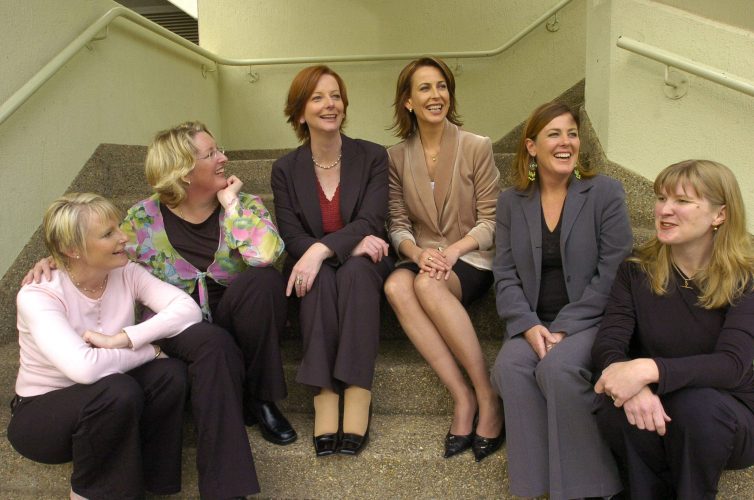There is something perverse about this scene: a 23-year- old French lad, Nicolas Jacquart, sits at the kitchen table in his rather dreary little London bedsit, with a CNN reporter at his side. The reporter, a grown-up lad in a suit, stares at the lap-top screen in front of them. ”So Nicolas, this is your bimbo?” Jacquart croons, ”Yah. I can put on her this T-shirt, like this,” he clicks the mouse, ”and make her look beautiful.” Both lads smile.
Hardly ”beautiful”. Instead he’s just made the bimbo a teeny-weeny bit more decent. She had been standing there in skimpy lace lingerie. At least now she has clothes covering her bulging bosom. As for those tiny hips, that pinched waist, the taut bottom and those impossibly long tanned legs, well Jacquart is pretty pleased with the look. After all he shaped her. But his bimbo, he assures us, is not just an online graphic creation. She’s a living, loving thing – with real needs. ”You have to look after her,” he assures us.
Jacquart feeds his bimbo a daily meal; rewards her with chocolate to make her happy; gives her diet pills when she’s fat; clicks her into the solarium when she’s too pale; and strips her down to her undies for a change of outfit when she’s going clubbing. And to improve her bimbo ”hotness” he’s even paid for breast implants and bought her some cosmetic surgery to fix her face, enlarge the eyes and pout the mouth. Then with a few quick text messages he’s procured more ”bimbo dollars” – via credit – to purchase surgery to rid her of pimples.
As for the money he’s spent on fixing her hair and changing her style, well that’s almost sent him broke. But not to worry; his hot little bimbo is well on the way to scoring a rich sugar-daddy, which is a key objective in the world of Miss Bimbo. All bimbo wannabes are clearly instructed from the outset that ”a good boyfriend brings you money”.
Now if Miss Bimbo sounds like a sick little secretive online game, that pimply faced big boys like Nicolas Jacquart play in the privacy of their own bedrooms, it’s not. It’s worse.
Sure big and little boys probably play it, and yes, in their bedrooms. But Miss Bimbo is an online ”game” actually aimed at young girls between the ages of seven and 17. It’s run as a weekly competition to be the ”hottest, coolest and most famous” bimbo in the world, and it is riddled with nasty, demeaning and utterly demoralising messages about what it means to be female.
Right now the game has in excess of 1.5 million registered players across Britain, France and the US. New players, including from Australia, are signing up at a rate of around a thousand every few hours.
Nicolas Jacquart is the game’s creator and, not surprisingly, parents, commentators and female news anchors are baying for his blood. One CNN presenter introduced a story about Miss Bimbo this week with an outburst of ”it’s vulgar, it’s immoral”. Another insisted ”this guy should be taken off to jail”. Yet Jacquart can’t understand what all the fuss is about. After all – ”it’s just a game”. And he’s right, it is just a game. But the fact that he and the game’s promoters don’t get why Miss Bimbo is so wildly offensive is perhaps as depressing as the misogyny that drives their lucrative online enterprise.
The game manages to harness all the primary insecurities that plague girls and young women, and mess with their sense of identity and self esteem. The female – the bimbo – is not a person with a personality. Instead she is a deconstructed sum of body parts. Each part has a value – literally. For every body part, there is a bimbo ideal. A player can feed and starve her bimbo’s waist into shape; and change just about every other aspect – again, at a cost. She can buy a facelift, or other bits of cosmetic surgery, in order to make herself – or her virtual persona – a better, more successful female.
The overriding message with every mouse click is that appearance can always be improved, or indeed must be improved. Ultimately, the thinner, sexier, bustier and the richer a bimbo’s boyfriend, the closer she gets to winning Miss Bimbo of the week and the prize of ”bimbo dollars”. Fame and fortune – the modern girl’s holy grail.
And given the online spending on improving body parts, clearly the deep craving for fame among girls and young women is insatiable. Here happiness is found in attractiveness. And sheer bliss is found in celebrity. It’s hard to fathom why a game with these kinds of messages exists in these post-feminist times. And even harder to understand why young girls love playing it. But they do. On the Miss Bimbo website numerous players have leapt to the game’s defence in the face of this week’s bad publicity and news that the site is now under investigation in Britain (for possible advertising breaches).
By lauding the bimbo ideal, and rewarding ”sexiness” and ”hotness” as the most desirable female attributes, one could assume that Nicolas Jacquart enjoys the company of buxom bimbos in real life. But apparently not. ”Of course no one wants to be a bimbo,” he giggles. Pity the game maker can’t tell his players that.





